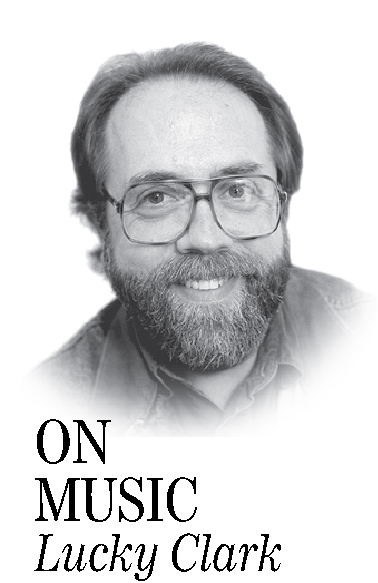
The Blues Prophets Submitted photo
The blues hold a special place in my heart — always have, always will — so I had to reconnect with one of the guys who started it all: David Gill, better known as DW. He and his fellow blues musicians got together in 1976 in Norridgewock and became The New England Blues Prophets, and over the ensuing years DW and I have chatted quite a few times (the last being in November of 2016). On the 14th of last month, I called him at his home in Winslow.
Q: Give us the update on your band please?
Gill: The Blues Prophets’ five-piece: the same guys that have been in the band. The only thing that’s really changed is the bass player. I mean, the bass player is the same bass player that we’ve had for, I don’t know, ah, 20-plus years anyway.
Q: Oh, good grief! (Laughter)
Gill: He was in our other band, the Blue Flames, Jack Tukey, so he’s the same guy. You probably have all the personal already?
Q: I have Jamie Isaacson on piano, Jeffrey Davison on drums and vocals, yourself on harmonica and vocals, and Doug Wainoris on guitar and vocals, and, now Jack Tukey on bass.
Gill: And I also play tenor sax.
Q: Do you still write and record new material?
Gill: Yeah, I’m kind of like the writer in the band. We have written some stuff lately, and we’re performing some new material. As far as recording, well, we’re not going into the studio per se. We’ve been recording at the rehearsal space, recording at the gigs and just kind of fine-tuning some of the stuff. But we have some newer material, and everybody’s bringing something to the mix.
Q: When it comes to your own personal song-writing style, how do you approach it?
Gill: I try to not reinvent the blues. I can’t come up with anything that’s better than these blues already, I mean, the blues is a pretty big umbrella — it covers a lot of different styles and I like it all. So when I write, I try to keep it within the genre, so to speak.
Q: Well if it ain’t broke, don’t try to fix it.
Gill: Right, right! Nowadays when new artists come out, it doesn’t sound like the blues any more, there’s a lot of histrionics, there’s a lot of pyrotechnics, everyone’s playing super, super fast and somehow it loses the mood of what the blues is. Tradition is, as far as I’m concerned, when you’d go out to hear someone play the blues you kind of get that feeling of release, all the troubles and problems you’ve had are gone, you’re more there to celebrate and have a good time. So the blues isn’t taking you down, it’s bringing you up, ya know?
Q: I do. One of my favorite sayings is: Music that comes from the heart, that’s where it goes when you hear it, and you can’t fake that, either. Now earlier you spoke about fine-tuning some of the songs you play. Could you give an example?
Gill: Well, Doug is bringing some B.B. King tunes, really nice stuff, and he’s got an instrumental called “My Mood” which is one of B.B. King’s signature songs. He’s also bringing a Willie Dixon song to the mix. Also, we’re working on Jake’s (Jamie Isaacson) piano instrumental, which is on the Blues Prophets album that was released in ’78. It’s called “Twisted Jake,” a piano instrumental that he does, so that’s one of the things that we’re doing. We’re just trying to carry on the tradition (chuckle).
Q: And that’s what’s going to keep this genre alive, that people are out there doing just what you guys are doing, playing and letting folks know about it. The blues is the root of everything. Look at rock music: If it wasn’t for the blues, I don’t think rock would be what it is now, either.
Gill: Yeah, well “The blues had a baby and they called it rock ‘n’ roll,” as Muddy Waters said. I mean, Muddy was welcoming to Paul Butterfield, Charlie Musselwhite, Michael Bloomfield and all those guys, you know, and Eric Clapton later on. So through the sharing of this music, the blues experience, bands like The Rolling Stones, that’s where they got their name from, a song by Muddy Waters, and “I Can’t Get No Satisfaction,” that was from “I Can’t Be Satisfied” by Muddy Waters. So it’s through the sharing that this music has been cross-pollinated to other genres. That’s the whole point!
Q: Is there anything, sir, that you’d like me to pass on to the folks reading this article?
Gill: Yeah, “The blues is still alive and we want you to come out and have a good time with us. Let’s all celebrate with a juke-joint event!”
Lucky Clark, a 2018 “Keeping the Blues Alive” Award winner, has spent more than 50 years writing about good music and the people who make it. He can be reached at luckyc@myfairpoint.net if you have any questions, comments or suggestions.
Copy the Story LinkComments are not available on this story.
Send questions/comments to the editors.


